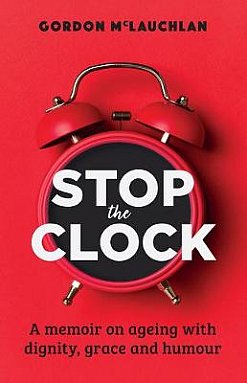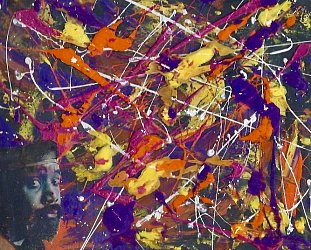Graham Reid | | 3 min read

It's interesting to speculate on what the writer, journalist and social observer Gordon McLauchlan – who died in January age 89 – would have made of the recent pandemic lockdown.
Doubtless he would have something astute to say about the language of politicians, scientists and business people, the behaviour of the masses and some wry observation of those miscreants who refused to follow sage advice.
But I'm certain he would also have addressed the issue affecting the elderly who – already isolated, marginalised and often invisible in society – were now warned they would be the most likely to fall to the invisible foe.
McLauchlan who was sprite, healthy, intellectually curious and working on words to the end, is a great defender of the wisdom of years, the patience that age brings and how much enjoyment can be had in the those years and sometimes decades after the Gold Card arrives.
But in these pages – the book subtitled “a memoir on aging with dignity, grace and humor” – he addresses the elderly and is not blind to the faults and flaws which aging reveals, and they can be the opposite of those features mentioned: stubbornness and a belief that the old days were better, impatience and a quiet anger at dreams unfulfilled or the carelessness of young people today.
Grumpy old buggers, in other words.
In a series of chapters McLauchlan works his way through these things with wit, sly observations, anecdotes and most of all wisdom from others.
By his own account he had long kept a book of quotations from writers and philosophers (and others) which were enlightening or had something to say about the human condition. These he peppers through his pages.
If the book has a failing it is that perhaps there are too many of these wise words which interrupt the flow.
In a dozen pages he cites as many others, from John Rowles' sister Cheryl Moana Marie ( who said of John he was the best brother he could be, given the sort of person he was) to Professor Arthur Quiller-Couch, TS Eliot, Socrates, Goethe . . .
Witty, pithy and insightful as these quotes and observations are, at times they intercede on Mclaughlin's own voice which is always worth hearing.
This is him on a well-known television newsreader who famously switched channels and described the “living hell” his life became, which drove him to Prozac.
“Thousands of people even in this country are daily assaulted by illness, deformity, poverty and other tortures, most of whom bravely get by and even find some things to be grateful for.
“So how could someone who for years read news that catalogued war, genocide, tragedy, poverty and every conceivable form of human deprivation and indignity say with a straight face that a brief personal upset which ended with a massive payout was 'a living hell'?
“Maybe it was just a failure of the imagination.”
Ouch.
McLauchlan negotiates the usual concerns of the aging process – intolerance, unwillingness to change, the language of the young, doctor visits, feeble minded journalists and declining sexual desire. He deals with these gently and with humour, his advice such as it is comes in the form of acceptance, having the time to enjoy simpler (and cheaper) pleasures, pushing fear of death away by accepting its inevitability.
He pulls anecdotes of his own experiences – sitting chatting with a homeless man or the woman who swam regularly at the same beach, until she didn't – and they are broad: thoughts on religion and belief, television, interviews, working in the Press Gallery, long walks, travel, books read and written, eight primary schools in four years . . .
If the answer to problem of aging lies anywhere it is in the small things. As he notes in passing, in words which he didn't live to see ring hopeful in these strange, changed times.
“The best prognosis for human beings is that the world-wide web, so fragile and weak, so vulnerable to the unscrupulous, may collapse one day and people will live locally, personally again.
“It may just save the world. That is if man's perennial pastime, war, doesn't get us first”.
This is a wise, sometimes annoying but always interesting book of thoughts, observations, irritants, sunny days and ideas to comfort.
One of those McLauchlan quotes is the French philosopher Michel Montaigne: “Take care that old age does not wrinkle your spirit even more than your face”.
I'm putting this book on the shelf and in the coming years – and, god willing, decades -- I will pull it out as a kind of soul and spirit check, to see where I have landed on the spectrum from wise and happy man to grumpy old bugger.
STOP THE CLOCK by GORDON McLAUCHLAN. Bateman Books, $30





post a comment